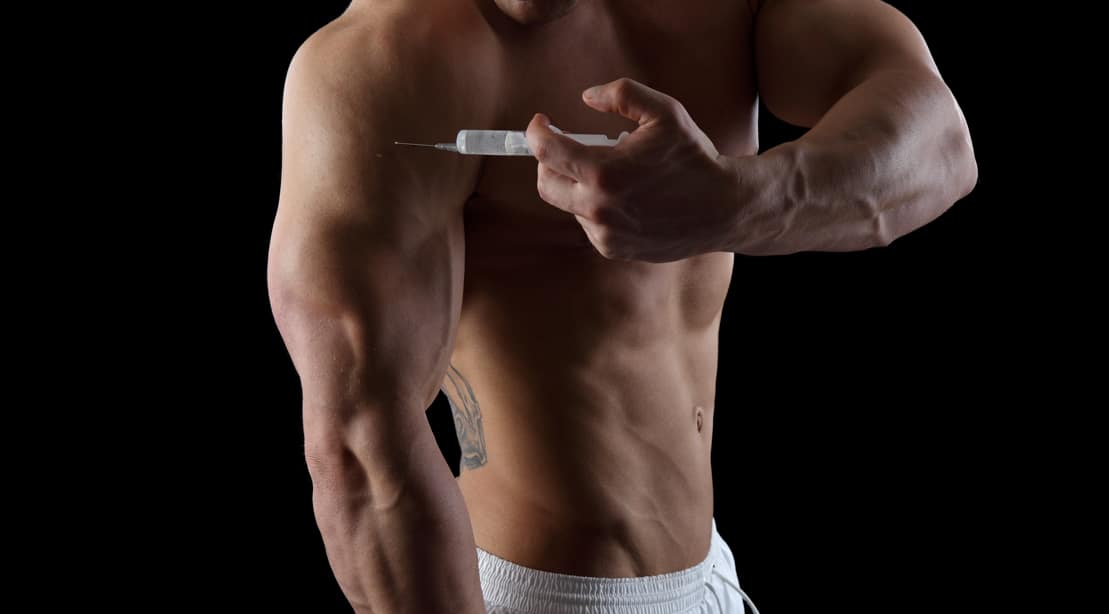Introduction
How Long Does Testosterone Take To Work Bodybuilding: Before delving into the specifics of testosterone’s effects on bodybuilding, it is essential to comprehend the basics. Testosterone is a natural hormone produced primarily in the testes in men and to a lesser extent in the ovaries in women. It is a potent anabolic hormone, meaning it aids in the growth and development of muscle tissue. In the realm of bodybuilding, testosterone is often referred to as the “holy grail” due to its profound impact on muscle hypertrophy and strength gains.
The timeline for when individuals can expect to see noticeable changes in their bodybuilding efforts after increasing their testosterone levels can vary. Several factors come into play, including genetics, dosage, frequency of administration, and the individual’s training and diet regimen. However, there are some general guidelines that can shed light on the process. In the short term, some individuals might experience a boost in energy and motivation within days or weeks of starting testosterone replacement therapy (TRT) or using anabolic steroids.
This can lead to more intense and productive workouts, potentially resulting in quick strength gains. However, visible muscle growth usually takes more time to manifest, typically several weeks to a few months. Long-term effects of increased testosterone levels in bodybuilding become more apparent as the months go by. Muscle hypertrophy becomes more evident, body fat percentage decreases, and strength plateaus are surpassed. The extent of these changes depends on various factors, including the individual’s commitment to their training and nutrition program.

How long to take testosterone bodybuilding?
One study administered 200 mg of testosterone enanthate every 2 weeks over 36 months to men with low testosterone. They observed that significant increases tend to occur within the first 12 months. This is why your first year on TRT is one of the most important in order to build muscle mass.
Dosage: The dosage of testosterone administered plays a significant role. Higher doses may lead to more rapid changes in muscle mass and strength, but they also increase the risk of side effects.
Administration Method: Testosterone can be administered through various methods, such as injections, transdermal patches, gels, or oral forms. The choice of administration can influence the rate at which the hormone is absorbed and utilized by the body.
Individual Variability: Each person’s body responds differently to testosterone. Genetics, age, diet, exercise regimen, and overall health can all impact how quickly an individual experiences changes.
Duration of Use: The longer testosterone is used, the more pronounced its effects are likely to become. However, prolonged use can also lead to a higher risk of side effects.
Is 1 ml of testosterone a week enough bodybuilding?
1 ml per week is 200 mg per week of testosterone. This is a replacement dose not shown to increase lean mass significantly in the short term. However, using higher doses may also increase red blood cell production and blood viscosity, so your doctor needs to monitor your hematocrit blood levels.
Baseline Testosterone Levels: Individuals with naturally low testosterone levels may benefit from 1 mL of testosterone per week to raise their levels to a more optimal range. This increase can lead to improved muscle growth and recovery.
Individual Response: Everyone’s body responds differently to testosterone supplementation. Some individuals may see significant gains with a lower dosage, while others may require more to achieve their goals.
Cycle Duration: The duration of testosterone use also plays a role. Some bodybuilders use cycles, which involve periods of testosterone supplementation followed by periods of rest to avoid potential side effects. The dosage during a cycle may be adjusted based on the phase.
Stacking with Other Compounds: Many bodybuilders stack testosterone with other compounds such as anabolic steroids to maximize their gains. The choice to stack and the dosages of these compounds can impact the overall effectiveness of the regimen.
How long does it take for testosterone to start kicking in?
For those who are just now receiving testosterone injections, they should be able to see small improvements within the first 3-4 days. Men will be able to sleep better and have more energy in the morning, and throughout the day. They may even feel a tad bit stronger if they hit the gym within the first week!
Administration Method: Testosterone can be administered through various methods, including injections, transdermal patches, gels, and oral forms. The choice of administration can affect the rate at which the hormone is absorbed and utilized by the body.
Dosage: The dosage of testosterone is a significant factor. Higher doses may lead to more rapid changes in testosterone levels and its associated effects.
Individual Response: Each person’s body responds differently to testosterone. Genetics, age, overall health, and underlying medical conditions can all play a role in how quickly or slowly changes occur.
Baseline Testosterone Levels: Individuals with extremely low baseline testosterone levels may experience more rapid and noticeable improvements than those with near-normal levels.
Does testosterone repair muscle faster?
Testosterone induces anabolic and anticatabolic mechanisms involved in muscle tissue growth, recovery and remodeling, and performance enhancement. However, the beneficial effects are not limited to skeletal muscle.
Testosterone Levels: Naturally, higher testosterone levels are associated with more significant muscle benefits. Individuals with low testosterone levels may experience a more noticeable improvement in muscle recovery when their hormone levels are brought back into the normal range.
Exercise and Training: Exercise, particularly resistance training, can stimulate the release of testosterone in the body. Combining testosterone with a well-structured training program can amplify its effects on muscle repair and growth.
Age: Testosterone levels naturally decline with age. Older individuals may experience slower muscle recovery, and testosterone supplementation may help restore some of the lost muscle-repairing benefits.
Diet and Nutrition: Proper nutrition, including sufficient protein intake and essential nutrients, is essential for muscle recovery. Testosterone works in conjunction with nutrition to support muscle repair processes.
Sleep and Rest: Adequate sleep and rest are crucial for muscle recovery. Testosterone production is often highest during deep sleep, so getting quality sleep can enhance its effects on muscle repair.
Is 200mg of testosterone a week too much?
You’re Taking Too Much Testosterone
Taking too much testosterone can cause a host of problems from pesky back acne and frustrating irritability to deadly stroke. In order to achieve an optimal level of testosterone (700-1100 ng/dL), most men require supplementation of 100 to 200 mg of testosterone weekly.
Medical Context: In a medical context, 200mg per week might be appropriate for individuals with diagnosed hypogonadism and severely low testosterone levels. In such cases, the goal is to restore testosterone levels to the normal physiological range.
Performance Enhancement: For bodybuilders and athletes looking to optimize muscle growth and performance, 200mg per week may be considered a moderate to high dose. Some individuals may require this level of dosage to achieve their desired results.
Risk of Side Effects: Higher testosterone doses increase the risk of side effects, which can include cardiovascular issues, mood swings, acne, and suppression of natural testosterone production. Therefore, individuals should carefully consider the potential risks associated with a 200mg weekly dosage.
Consultation with a Healthcare Professional: It is essential to consult with a healthcare professional, preferably an endocrinologist or a physician experienced in hormone therapy, before starting or adjusting testosterone supplementation. They can evaluate individual health, hormone levels, and medical history to recommend an appropriate dosage.
Will 100mg of testosterone a week build muscle?
If you’re using them for muscle building purposes and start at a low dose of 100 mg per week and work your way up over time, the effects could be seen after just a few weeks. Muscle mass gains will also happen quickly if you combine these injections with exercise sessions at least three times per week.
Baseline Testosterone Levels: Individuals with low baseline testosterone levels may experience more pronounced muscle-building effects when their hormone levels are raised to a more optimal range by 100mg of weekly testosterone.
Individual Response: Not everyone responds the same way to testosterone supplementation. Genetics, age, overall health, and other factors can influence an individual’s response to the hormone.
Diet and Nutrition: Proper nutrition, including sufficient protein intake and essential nutrients, is crucial for muscle growth. Testosterone works synergistically with nutrition to support muscle-building processes.
Exercise and Training: Consistent resistance training and exercise programs play a vital role in muscle development. Testosterone alone cannot build muscle effectively without the stimulus provided by exercise.
Rest and Recovery: Adequate rest and recovery are essential for muscle growth. Testosterone’s effects are optimized when individuals prioritize sufficient sleep and rest periods between workouts.
Is it OK to inject testosterone once a week?
Testosterone enanthate injection (Xyosted) comes as a solution (liquid) to be injected subcutaneously (under the skin) once a week by yourself or a caregiver. Testosterone injection may control your symptoms but will not cure your condition.
Variability in Response: Individuals may respond differently to various injection frequencies. Some people may require more frequent injections to maintain stable hormone levels.
Injection Site Discomfort: Frequent injections, even if once a week, can lead to discomfort at the injection site, such as pain, redness, or swelling.
Risk of Fluctuations: Despite efforts to maintain stable levels, some individuals may experience fluctuations in mood, energy, or libido on a weekly dosing schedule.
Individualized Approach: The ideal injection frequency may vary from person to person, and it should be determined based on individual needs and response to treatment.
Consultation with a Healthcare Professional: Decisions regarding the frequency of testosterone injections should be made in consultation with a healthcare professional, preferably an endocrinologist or a physician experienced in hormone therapy. They can evaluate an individual’s health, hormone levels, and medical history to recommend an appropriate dosing schedule.
Is 200 ml of testosterone every 2 weeks enough?
For both groups, levels plateaued below the therapeutic range (300 ng/dL by week 3 for the 300 mg group and week 4 for the 400 mg group). Based on these results, TE dosed at 100 mg once weekly or 200 mg every 2 weeks maintains serum testosterone within therapeutic range by the end of the dosing regimen.
Type of Testosterone: The type of testosterone medication used can affect how the hormone is released and metabolized in the body. Some formulations require less frequent injections, while others may require more frequent dosing.
Hormone Levels: The goal of TRT is to achieve hormone levels within the normal physiological range. Monitoring hormone levels through blood tests is essential to ensure that the chosen dosage is effective.
Symptom Relief: The effectiveness of TRT is often measured by symptom relief. Individuals should discuss their symptoms and progress with their healthcare provider to determine if the chosen dosage is sufficient.
Individual Response: Response to TRT varies among individuals. Some may experience significant improvement with this dosing schedule, while others may require adjustments to their dosage or frequency.
Healthcare Professional Guidance: Decisions regarding the dosage and frequency of testosterone injections should always be made in consultation with a healthcare professional, preferably an endocrinologist or a physician experienced in hormone therapy. They can assess an individual’s specific needs, hormone levels, and medical history.

Conclusion
Short-term benefits such as increased energy, motivation, and initial strength gains can be experienced within days or weeks of initiating testosterone supplementation. These early gains often serve as a motivating factor, propelling individuals to commit further to their bodybuilding endeavors.
However, the road to achieving substantial muscle growth, significant strength improvements, and a transformed body composition is a more extended one. For most individuals, this transformation occurs over several weeks to several months. During this time, muscle hypertrophy becomes more evident, body fat decreases, and overall athletic performance reaches new heights. Consistency in training, nutrition, and recovery practices are paramount during this period.
It is crucial to emphasize the importance of responsible and ethical use of testosterone in bodybuilding. The use of anabolic steroids for performance enhancement should always be conducted under the guidance of a medical professional, as misuse can lead to serious health risks and ethical concerns. Individuals should recognize that the timeline of testosterone’s effects is highly individualized. Genetics, hormone levels, dosage, and the overall approach to bodybuilding all play pivotal roles in determining the rate of progress.


2 comments
… [Trackback]
[…] Here you will find 29887 more Info on that Topic: thefitnessblogger.com/how-long-does-testosterone-take-to-work-bodybuilding/ […]
… [Trackback]
[…] Info on that Topic: thefitnessblogger.com/how-long-does-testosterone-take-to-work-bodybuilding/ […]